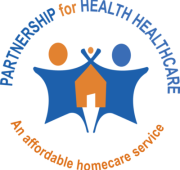As people age, the risk of developing kidney disease increases. According to the National Institute of Diabetes and Digestive and Kidney Diseases, about 38 percent of adults aged 65 or older have some degree of kidney disease. The link between kidney disease and older adults is significant, as the condition can lead to serious health complications and even death. In this article, we will explore the link between kidney disease and older adults, including the risk factors, symptoms, and treatment options.
Risk factors for kidney disease in older adults
There are several risk factors that can increase the likelihood of developing kidney disease in older adults. One of the most significant risk factors is age itself. As people age, the kidneys naturally start to lose some of their functions. This can lead to a decline in kidney function, which can eventually progress to kidney disease.
Other risk factors for kidney disease in older adults include high blood pressure, diabetes, and heart disease. These conditions are more common in older adults and can damage the kidneys over time. Additionally, certain medications, such as nonsteroidal anti-inflammatory drugs (NSAIDs), can increase the risk of kidney damage in older adults.
Symptoms of kidney disease in older adults
The symptoms of kidney disease in older adults can be difficult to detect, as they often develop slowly over time. Some of the most common symptoms of kidney disease in older adults include fatigue, weakness, and loss of appetite. Other symptoms may include swelling in the feet and ankles, difficulty sleeping, and changes in urination patterns.
In some cases, older adults may not experience any symptoms of kidney disease until the condition has progressed to an advanced stage. This can make it challenging to diagnose kidney disease in older adults, and it highlights the importance of regular health screenings for older adults.
Treatment options for kidney disease in older adults
Treatment for kidney disease in older adults typically involves managing the underlying conditions that may be contributing to the condition. For example, if a person has high blood pressure or diabetes, managing those conditions can help slow the progression of kidney disease.
In some cases, medication may be prescribed to help manage symptoms and slow the progression of kidney disease. Additionally, changes to the person’s diet may be recommended, such as reducing salt intake and increasing water consumption.
In more advanced cases of kidney disease, dialysis or a kidney transplant may be necessary. Dialysis involves using a machine to filter blood and remove waste products from the body. A kidney transplant involves surgically replacing the damaged kidney with a healthy one from a donor.
Preventing kidney disease in older adults
Preventing kidney disease in older adults involves managing the risk factors that can contribute to the condition. This includes managing conditions such as high blood pressure, diabetes, and heart disease, as well as avoiding medications that can damage the kidneys.
Additionally, making healthy lifestyle choices can help reduce the risk of kidney disease in older adults. This includes maintaining a healthy weight, getting regular exercise, and eating a healthy, balanced diet.
Regular health screenings are also important for older adults, as they can help detect kidney disease in its early stages. This can allow for early intervention and treatment, which can help slow the progression of the condition.
Conclusion
The link between kidney disease and older adults is significant, as the condition can lead to serious health complications and even death. Older adults are at an increased risk of developing kidney disease, due to a combination of age-related kidney function decline and the higher prevalence of conditions such as high blood pressure and diabetes. Symptoms of kidney disease in older adults can be difficult to detect, and treatment typically involves managing underlying conditions and making lifestyle changes. Preventing kidney disease in older adults involves managing risk factors and making healthy lifestyle choices, as well as regular health screenings to detect the condition in its early stages. By understanding the link between kidney disease and older adults.
Home Care Near Me Let’s Get Started!
Get Immediate Help with Information, Costs & Payment Options.



Recent Comments